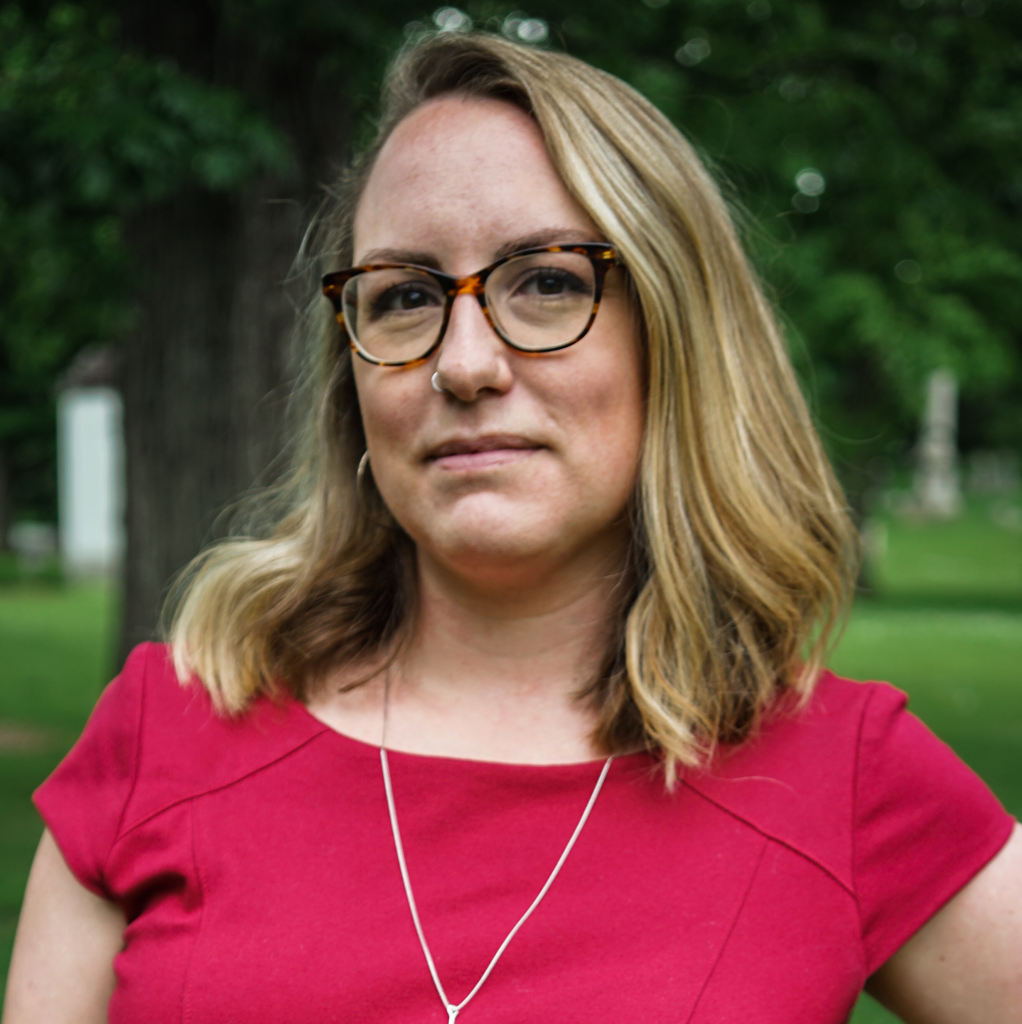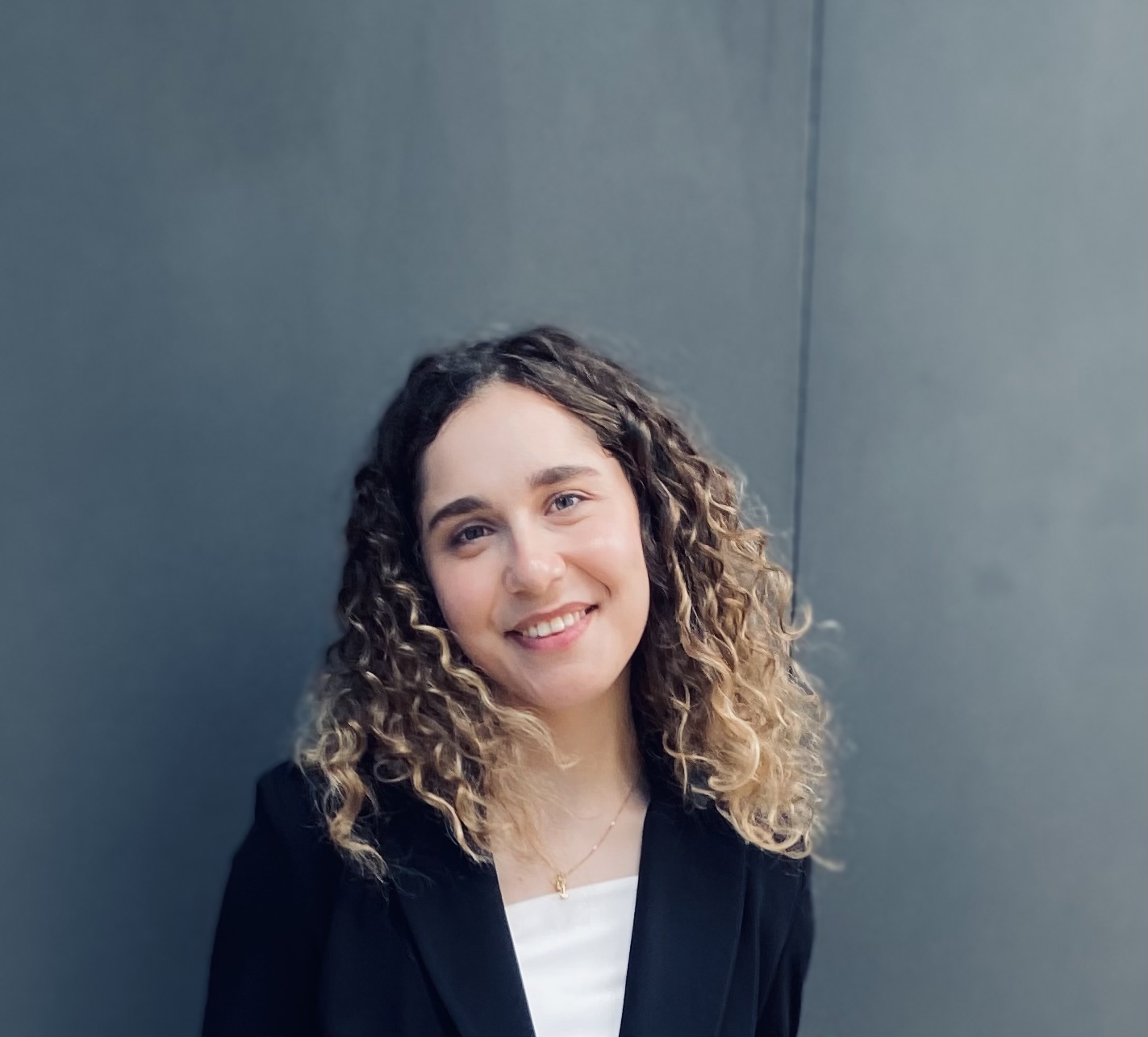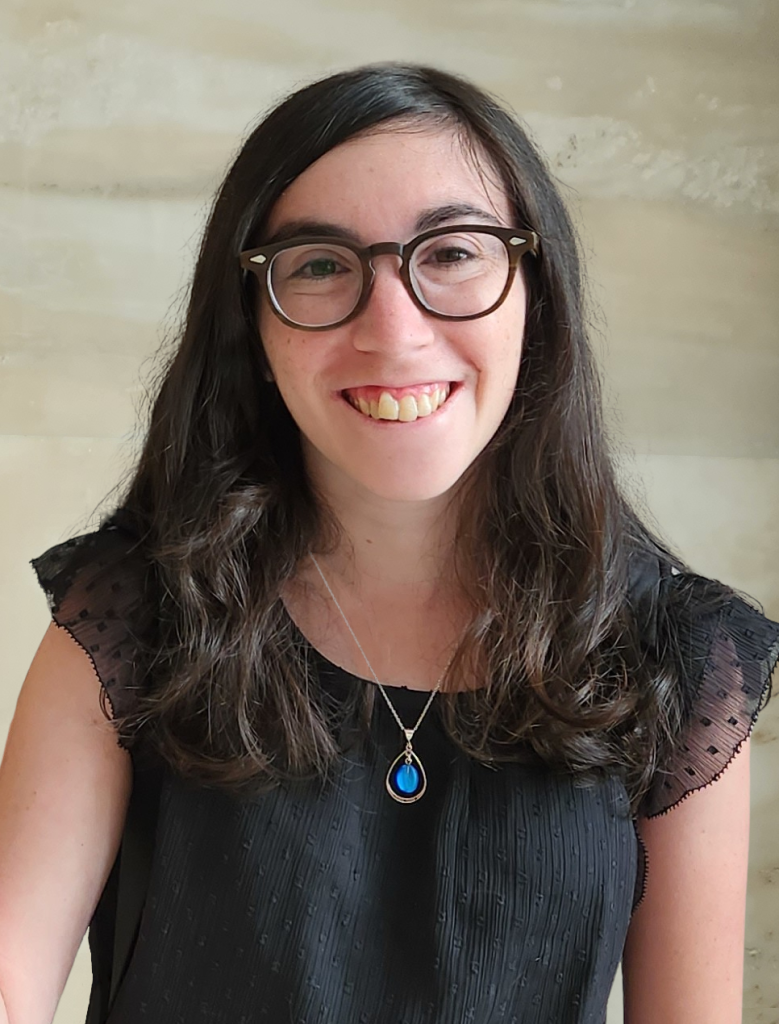The Disability History Association is pleased to announce several changes to the Board. The Board recently elected Dr. Sarah Handley-Cousins to the role of President of the DHA. Handley-Cousins had been on the Board in the capacity of Director of Records (Secretary). The Board also elected Dr. Kristen Nassif to Treasurer (she had been Director of Programs). In addition, the Board welcomed Ellie Kaplan as Director of Graduate Student Affairs. Finally, the Board also welcomed Dr. Hannah Zaves-Greene to Director of Affiliations. In addition, Lidia Militerno joined us as an intern who will focus on web maintenance.
We bid farewell to Dr. Laurel Daen (Treasurer), Jasper Conner (Director of Student Affairs), and Dr. Katie Healey (Director of Media and Accessibility). Thank you all for your service to the DHA.
We will have more Board news to share soon.
For now, we hope you enjoy learning more about our Board.

Sarah Handley-Cousins is an associate teaching professor at the University at Buffalo. She received a bachelor’s degree from Wells College, MS in Education from Niagara University, and PhD from the University at Buffalo. She is the author of Bodies in Blue: Disability in the Civil War North and coauthor of Spiritualism’s Place: Reformers, Seekers, and Séances in Lily Dale. Currently, she is at work editing the Routledge Handbook of Disability in America with Laurel Daen, due out in 2026. Sarah also serves as the executive editor of Nursing Clio, a collaborative digital publication on the gender, health, and medicine, and a producer of Dig: A History Podcast.

Ellie Kaplan (Director of Graduate Student Affairs) is a PhD Candidate in the History Department at the University of California Davis. She previously earned her M.A. in history from Syracuse University. Her dissertation explores how the National Park Service (NPS) implemented Section 5 of the 1973 Rehabilitation Act from the 1970s to the present. Of particular interest are the ways disabled visitors and employees influenced the process and made the law meaningful to their lives. Recently Ellie completed an internship with the National Park Service where she conducted oral histories and wrote several articles for the NPS website. The article topics range from highlighting visitor feedback forms at Yosemite National Park to comparing three guidebooks written by and for disabled visitors to NPS sites and more. Additionally, Ellie is interested in the integration of disability stories and themes into K-12 curriculums. She has worked for the Library of Congress as a Junior Fellow and the California History-Social Science Project as a Graduate Student Researcher on this endeavor.

Lidia Militerno (Intern) is a freelance editorial contributor. She holds a Master’s Degree in Modernism after Postmodernism – Twentieth Century Art and its Interpretation from the Courtauld Institute of Art, where she graduated in 2024, and a BA (Hons) in Liberal Studies Art History from Regent’s University London. By integrating disability studies as a critical methodology, her work seeks to uncover how art reflects and reshapes societal attitudes toward bodily difference, offering new frameworks for understanding identity, agency, and the politics of visibility in the visual arts. Lidia’s professional background includes roles in various cultural institutions and editorial platforms. She currently contributes to Trebuchet Magazine and TheCollector, writing on art history and contemporary culture. From 2022 to 2023, she worked as an Explainer at Kenwood House with English Heritage in London. Her interests extend to art law, museum security, and modern art, with certifications from Sotheby’s Institute of Art and the Fondazione Scuola dei Beni e delle Attività Culturali.

Kristen Nassif is the Curator of Collections at The Fralin Museum of Art at the University of Virginia. Kristen received her Ph.D. in Art History from the University of Delaware in 2022. Her research focuses on nineteenth-century American art, visual culture, material culture, and disability history. Prior to beginning her position as DHA Treasurer, Kristen served as the Director of Programs and as an intern.

Hannah Zaves-Greene is a scholar of American Jewish history and disability. She is currently a Fellow at the University of Pennsylvania’s Katz Center for Advanced Judaic Studies, centered around the theme of Jews and Health. Hannah is also Historian in Residence at the Wyner Family Jewish Heritage Center in Boston. Her research is supported by the National Endowment for the Humanities and the New York Public Library, and she taught at Sarah Lawrence College as a visiting professor of Jewish Studies, as well as the New School and Cooper Union. She received her PhD in Judaic Studies from NYU, where she also focused on disability studies, gender and sexuality studies, and legal history. Hannah’s book project, Able to Be American: Disability in U.S. Immigration Law and the American Jewish Response, explores how American Jews contested discrimination premised on health, disability, and gender in federal immigration law, broadening and reconceptualizing understandings of disability, citizenship, and national belonging. She consults for the National Museum of Immigration at Ellis Island, as they work to recognize disability’s role in American immigration history. Hannah’s scholarship has appeared in American Jewish History and the Journal of Transnational American Studies, and she contributed a chapter to Forged in America: How Irish-Jewish Encounters Shaped a Nation. She has also written for the American Jewish Archives Journal, the Journal of American Ethnic History, and the Journal of Modern Jewish Studies, and sits on the Academic Advisory Council of the Jewish Women’s Archive.
